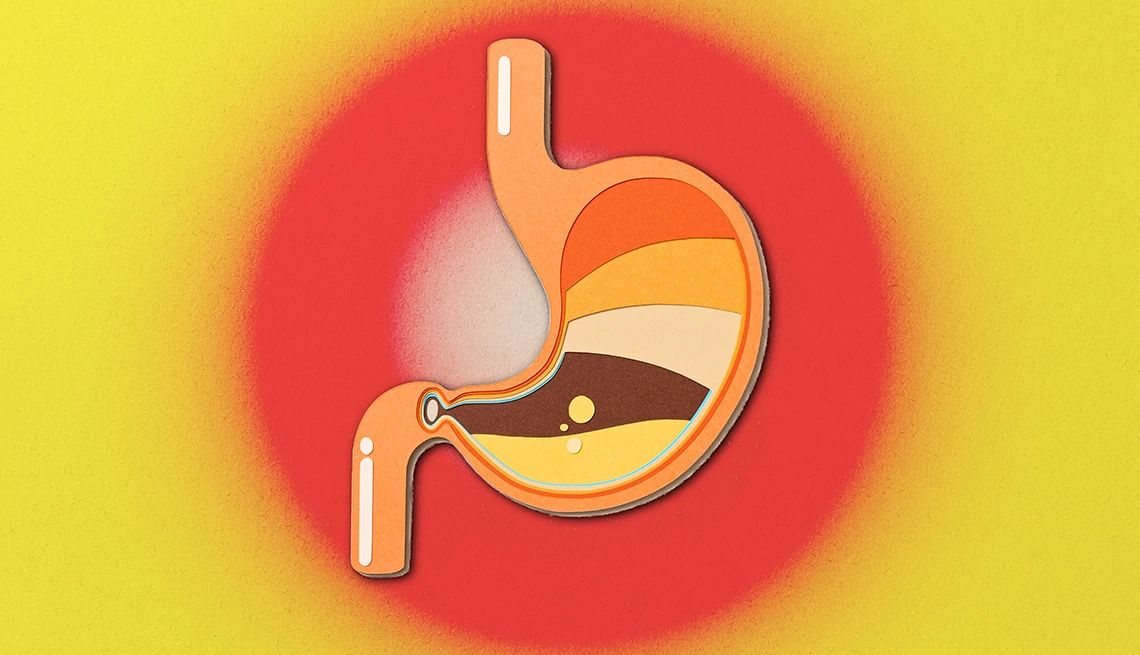AARP Hearing Center


It’s hard to lead a happy, healthy life without a happy, healthy gut.
Problems like chronic constipation, diarrhea or bloating can make you miserable. Other gut problems can cause pain or bleeding or threaten your long-term health. An out-of-balance gut can throw off your immune system and contribute to everything from obesity to diabetes to mood disorders.
Unfortunately, some common habits and health choices can make your gut health worse. Here are 10 ways you might be sabotaging your gut health:
1. Eating a low-fiber diet
You probably know that fiber, found in fruits, vegetables, nuts, beans and grains, helps you stay regular — but it does a lot more.
“Fiber is an excellent averaging agent,” says Dr. James Tabibian, a gastroenterologist at Adventist Health in Glendale, California, and author of Digestive Problems Solved: A Patient’s Guide to Expert Insights and Solutions. “It makes harder stools softer and easier to get out,” he says, “and it makes more liquid stools have a little bit more bulk.”
Fiber is also food for trillions of helpful bacteria in your gut. A flourishing, well-balanced population of these microbes, known collectively as your microbiome, strengthens your immune system, reduces inflammation and has been linked to other health benefits.
Fiber can also help prevent diverticulosis, a condition in which pouches form inside your colon and sometimes bleed or get painfully infected, Tabibian says.
Yet, “as a U.S. population, we definitely don’t eat enough fiber,” says Dr. Morgan Allyn Sendzischew Shane, an assistant clinical professor of gastroenterology and digestive disease at the University of Miami.
According to the U.S. Centers for Disease Control and Prevention (CDC), the average adult gets about half of the daily 22 to 34 grams recommended in the Dietary Guidelines for Americans. The guidelines say to aim for 14 grams of fiber with every 1,000 calories.
2. Skimping on fluids
Dehydration is a big cause of constipation. Water and other fluids work with fiber to keep your digestive system flowing along, says Dr. Austin Chiang, a gastroenterologist and author of Gut: An Owner’s Guide and an assistant professor of medicine at Sidney Kimmel Medical College in Philadelphia. Producing stools that are both bulky and easy to pass is “about a balance,” he says, between water and fiber in your body.
While fluid needs vary, depending on your size, activity level and other factors, the National Academy of Medicine suggests that men get about 13 cups and women get about 9 cups daily from drinks and foods.
3. Moving too little
One reason many people develop bowel problems with age is that they move less, Tabibian says. “People who are physically active are less likely to have bowel habit issues,” especially constipation, he adds.
Shane says the connection is pretty straightforward: “Less movement of your body means less movement of your gut.”





































































More From AARP
Ask Dr. Adam: How Can I Boost My Immune System?
Help strengthen your body’s defenses against illness this winterThe Brain-Gut Connection
Uncover the science and take steps toward helping your brain health6 Effective Diets for Weight Loss
Learn the pros and cons of some of the most popular diets